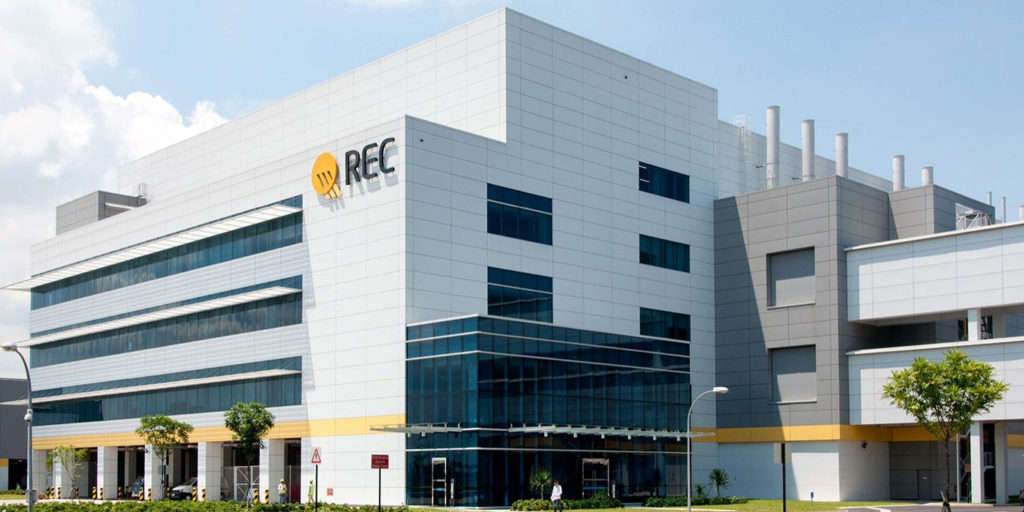REC Solar has secured an unspecified grant from the European Union to build a 2 GW heterojunction (HJT) module factory in France. The Rise project, backed by REC's Singapore and French divisions and the French government, is one of 17 clean tech plans that will share €1.8 billion ($1.8 billion) of European public money via the EU Innovation Fund.
REC Solar, which was acquired by Indian energy company Reliance Industries last year, has previously claimed the 2 GW per year of HJT modules to be made in the fab will boast a conversion efficiency of more than 22.5%, rising to 26% by 2030. Details of the grant application for EU funding stated that the panels would have 90% bifaciality, feature G12 wafers, and be compatible with future HJT-perovskite tandem technology.
The modules can generate electricity 5% to 10% cheaper than current mainstream mono Perc technology and will be made in a renewables-powered factory using thinner silicon and wafers, according to REC. The products will also feature recycled silicon sludge material created during wafer cutting, known as kerf.
The grant decision did not specify where in France the gigafactory will be built and the EU announcement of the awards, made this week, did not specify how much individual applicants had secured. The Rise project, supported by the French government's nuclear and alternative energy department – the Commissariat à l'Énergie Atomique et aux Énergies Alternatives – can expect funding to be paid after projects nail down their grant details in the final three months of the year.
The Innovation Fund is financed by income from the EU's emissions trading system for industrial carbon allowances. Awards were also made to battery storage projects in France and Poland.
Swedish battery company Northvolt won backing for production lines for its Voltainer product, to be manufactured in Gdansk and Tczew, in Poland.
Popular content
The Voltainer will contain a higher nickel content in its nickel, manganese, and cobalt (NMC) chemistry and will be 16.9% to 18.8% cheaper per kilowatt-hour of storage capacity than current short-term storage devices, according to Northvolt.
The battery company said more than 90% “of the value of” the product's components and equipment would come from the “European supply chain,” with the company's Stockholm facilities also involved. Back in France, miner and metallurgical business Eramat SA has secured EU support for what it described as a “first-of-the-kind black mass recycling unit” at a battery cluster at Dunkirk.
The proposed plant would be able to recover the black mass raw material – a powder made from crushing the electrode-containing parts of dead batteries – from 50,000 tons of scrap per year, according to Eramat.
Announcing the awards from the Innovation Fund's second call for projects, the EU said “up to 20” other projects not yet mature enough to qualify for grants would be pre-selected for help from EU lender the European Investment Bank with developing their plans.
Projects which applied unsuccessfully for grants in the most recent call can reapply, with a €3 billion or so third call for projects due in the “autumn,” the EU added.
This content is protected by copyright and may not be reused. If you want to cooperate with us and would like to reuse some of our content, please contact: editors@pv-magazine.com.



1 comment
By submitting this form you agree to pv magazine using your data for the purposes of publishing your comment.
Your personal data will only be disclosed or otherwise transmitted to third parties for the purposes of spam filtering or if this is necessary for technical maintenance of the website. Any other transfer to third parties will not take place unless this is justified on the basis of applicable data protection regulations or if pv magazine is legally obliged to do so.
You may revoke this consent at any time with effect for the future, in which case your personal data will be deleted immediately. Otherwise, your data will be deleted if pv magazine has processed your request or the purpose of data storage is fulfilled.
Further information on data privacy can be found in our Data Protection Policy.